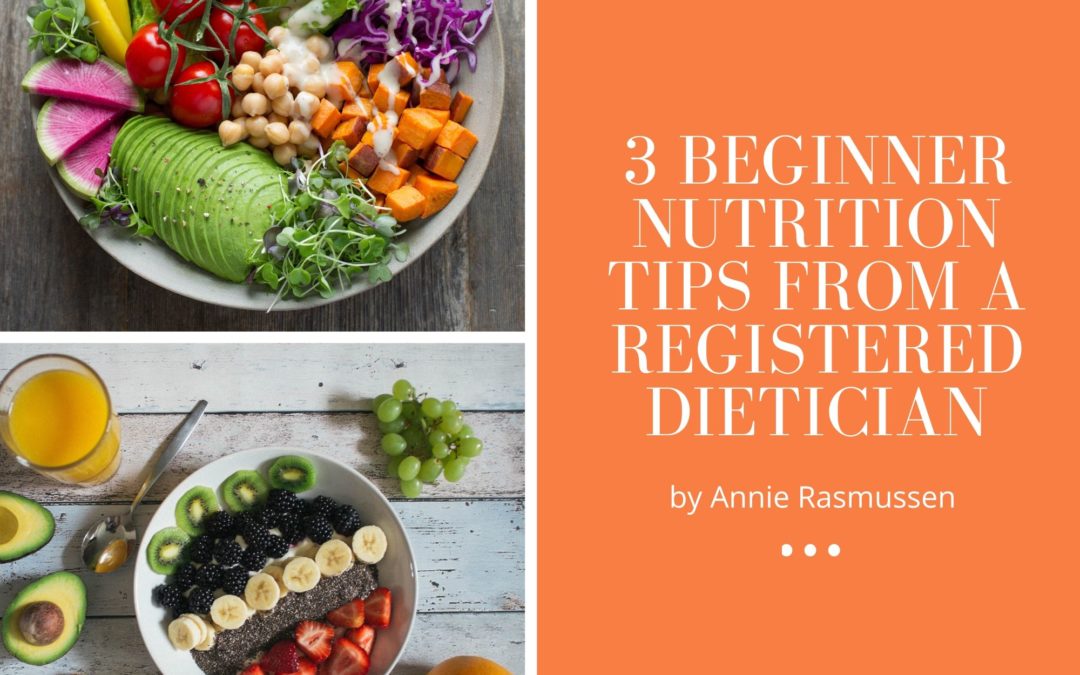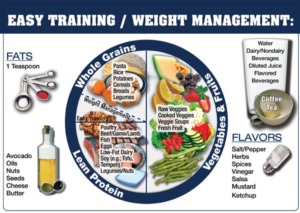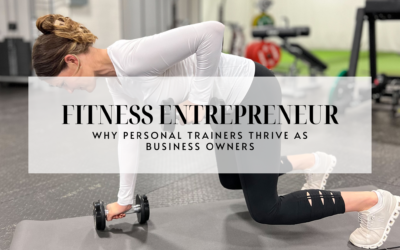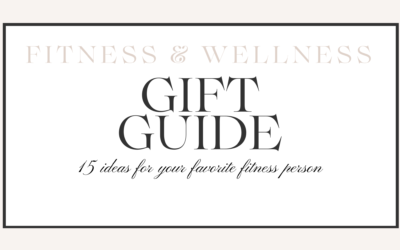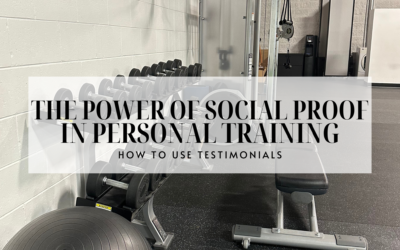Hopefully you landed on this blog because you are looking for some nutritional guidance. Because I, with the help of a registered Dietitian, are going to give you three beginner nutrition tips. They are a great place to start if you are just getting going on your food journey or if you are overwhelmed with the information you have already found.
This post contains affiliate links. I make a commission when you order through one of my links, but there is no increase to the cost you pay.
Changing Your Nutritional Habits
As creatures of habit and routine, the thought of changing up our lifestyle can seem overwhelming and sometimes scary. Especially when it comes to nutrition. We all have our reasons for wanting to change our diet for the better. This often comes with a drastic change in completely eliminating foods we enjoy or extreme cuts in calories. I sat down and interviewed Elizabeth Kasparek, a Board Certified Specialist in Sports Dietetics with Sanford Power at the Sanford Sports Science Institute in Sioux Falls, SD to talk about beginning. Although Elizabeth is a Sports Dietitian, she works with every person from middle school to college athletes, or from general population to marathon runners. She has seen a multitude of different people coming through her door asking for the same advice you are seeking here.
Where do I Start?
When it comes to basic nutritional guidelines Elizabeth likes to share with those who ask her where to start. She gave three basic actions to take:
1. Drink more water!
This is just one example of a small change, but a common one everyone can follow. She emphasized that pretty much everyone could use more water in their day not only to help your body feel better, but to help you think sharper. If you are someone who struggles with drinking more, she suggests always having a water bottle in your hand. You can flavor it with a zero-calorie sweetener if need be.
This is one area I am STILL working at. Some days I knock it out of the park, other days … well let’s just say it isn’t good. I have found it helpful to use the same water bottle so I get use a schedule of evenly consuming water. I love hydroflask – this one is my favorite. Water is also important for your recovery between workouts, your level of focus and energy throughout the day and your sleep.
2. Find ways to add a fruit or vegetable at every meal (emphasis on the vegetables)!
Elizabeth said that this is a great place to start when thinking about changing your nutritional habits. She encouraged creativity and customization in this department! Try adding spinach in your smoothie (that’s an easy one!). Or putting steamed broccoli in your mac and cheese (yes, her suggestion!). Or maybe trying something more neutral like mashed cauliflower in your mashed potatoes.
I personally encourage myself to try a new recipe often. Not just something that I haven’t made before, but something I normally wouldn’t eat. Sheet pan cooking is so convenient and fast I knew I wanted to try it. So I went for a chicken, broccoli, brussel sprout and gnocchi dish. It. Was. Amazing. Big bonus is that it worked in two vegetables into my meal.
3. Build a balanced plate!
When it comes to the basics of a balance plate, Elizabeth talks about half your plate being fruits and vegetables, one fourth carbohydrates (complex preferably), and one fourth protein. This also includes about a teaspoon of fat that could be found in a healthy oil, for example. One meal that she emphasized people forget to do this with is breakfast, in which a lot of high carb meals are found, and protein gets lost. She suggests adding an egg or greek yogurt to the morning mix! Check out the plate example she provided below.
I found this example helpful. As a visual person, it struck home. As a former collegiate athlete adjusting my food consumption to my new lifestyle has been a challenge. The fact this these portion sizes are for easy training days and weight management gave me the perspective I needed. If you want to learn more about transitioning to life after college athletics read this.
In this article I share what I learned from reading The Healthy Former Athlete by Registered Dietician Lauren Link. The five main points that you and I can apply to our lives immediately to help the transition move more smoothly. It is also a very relatable book for post collegiate athletes. Giving us the feeling that we are not alone.
Get your copy of the book here!
What are the Take-Aways?
Elizabeth stated that it is what you do consistently that matters. She found through studies she has read that many diets require drastic changes of which the majority end up gaining the weight back eventually. It is about finding healthy habits that you can sustain for a healthy life. She suggests simply tracking what you eat for a couple days and how that food makes you feel!
After talking with Elizabeth, I took away that just like exercise, nutrition is not a one-size-fits all plan. Find sustainable habits that help you feel like you are fueling your body for success. So maybe today you start with drinking one extra cup of water. Tomorrow you focus on adding a vegetable to your dinner plans. Changing your nutritional habits can be overwhelming but focusing on one step at a time can make the challenge a bit less daunting.
Write down your one focus for nutritional habits and remind yourself of it daily. This will help prevent you from being side tracked by trying to do too much at once.
ASSESS YOUR ENDGAME & AVOID FAD DIETS
Have you heard of fad diets? Do you know how to identify a fad diet before it’s too late?
It is no secret we are in the age of information. Any question we have on any topic can be searched and within seconds we have thousands of articles with answers. However, we are faced with a challenge. Which information is credible and which is coming from unqualified sources?
This is where fad diets come in. I started typing in Google “what diet” and the top answers were “works best for me”, “is best for losing weight”, and “pill was on Shark Tank”. The world is looking for quick fixes and from sources that know nothing about them or their body type. It is easy to find information that supports your ideas about weight loss. But we must determine what is fact and what is fiction.
To ensure that my information is reliable I looked to registered dietitian, Elizabeth Kasparek, for some insight. She has seen first hand what happens when strict diet and restrictions are held on unhealthy foods. It has been shown that although it works for the time being, eventually people return to their bad habits and gain the weight back.
Yes, some diets work. They get you to lose the weight in the time you want to lose it. But Elizabeth begs you to answer the question, “Why is that number your ‘ideal’ weight?”.
For some this is a weight they had in high school or when they were under a lot of stress and fueling their body was not a priority. Their bodies may be weak, but they hit that magic number on the scale! This is not the case for everyone, but it is something to consider when evaluating your weight loss goals. Are you reaching for a number on a scale? Or a better lifestyle that has you feeling healthy and strong?
Making sure that your endgame or the reason why you are adjusting your lifestyle has your best interest at the forefront is vital. Without a strong “why” the likelihood of succeeding short term or long term is low.
EVALUATING YOUR PERSPECTIVE
Again, the key is to think about the quick fix. Or should I say STOP thinking about the quick fix.
Elizabeth put it as “what is the diet or diet pill worth to you”? Do you have to make drastic changes and cut out a macro nutrient? When looking at our diet we have to consider whether these sacrifices are sustainable.
This article is not a how-to on weight loss or a road map to getting your beach bod. It is perspective.
I want to offer a perspective on the diet culture with the help of a registered dietician. And I want you to step back and look at your perspective. Double check yourself because no one else is going to do it for you.
Elizabeth talked about when you see dieters or plans on social media. She stated that it is good to consider that they may be getting rid of their other unhealthy habits along with the diet plan they post. Meaning, it takes more than a sheet of paper to get you from A to B. This is an important piece to consider before going all-in on a product you see.
Another way to think of this is, what else will I need to be successful? Often the diet plan is not the only factor.
Elizabeth encourages us to focus on weight loss in a healthy way. It is all about the habits you are forming! Another interesting perspective she posed was the idea of thinking of your family or friends. Would you want them following this crazy diet? And if it is not beneficial for your whole family (i.e. kids, spouse, etc.) is it the best idea for you?
ESTABLISHING YOUR PERSPECTIVE
Finding a realistic well-round approach is going to be best. And thats something fad diets wont tell you. You may want to consider how your sleep is impacting your life, health and even workouts. It is probably much more than you recognize. And don’t even get me started on stress and it’s impact on your life. Stress eating is a term for a reason. Finding ways to manage stress will be essential to success.
Recovery will be another important part of your road to success. You eat well, you sleep well, you are managing your stress levels and you are getting some killer workouts in. Now you may start to feel worn down, or beat up or stiff. That’s likely because you aren’t finding time to recover. And let’s be clear you can feel this way from a long, stressful day at work. So having a go to recovery program can be beneficial.
FIND YOUR PATH AWAY FROM FAD DIETS
This is not to say all diets are frauds. One example that Elizabeth supported was the use of the Mediterranean Diet. She has stated that this has great research behind it! Because it actually is based off of eating habits and been shown beneficial for heart health. But I am saying to beware of big promises and quick fixes. Diet is a long term lifestyle.
As Elizabeth encouraged me to pass along, it is about finding trust-worthy sources. Speak to a local registered dietician. Educate with articles from sources that don’t end in .com. Research thoroughly before trying the latest trend.
I would like to reiterate that I am not here to tell you what diets to follow or what is the best. I am simply giving a different vantage point and encouraging you all to make an informed decision when choosing what fuels your body! Just as I said, we are in the information age. Use it wisely.
3 Reasons a Personal Trainer Thrives as Fitness Entrepreneur
As the heartbeat of the fitness world, personal trainers hold a unique power - the power to transform lives, ignite passion, and inspire lasting change. Now, imagine channeling that incredible force into something even more extraordinary - your own fitness business....
Fit Finds: The Ultimate 2023 Fitness Gift Guide
Welcome to the world of fitness and wellness gifting! As we gear up for 2023, it's time to start setting goals and looking for resources to help us succeed. Whether you're a fitness fanatic or seeking the perfect gift for one, our Ultimate 2023 Fitness Gift Guide is...
The Power of Social Proof In Personal Training
In the world of personal training, where trust and credibility play pivotal roles, the concept of social proof functions as an authentic way to connect with your audience. Social proof, the influence created when individuals see others engaging in a particular...


